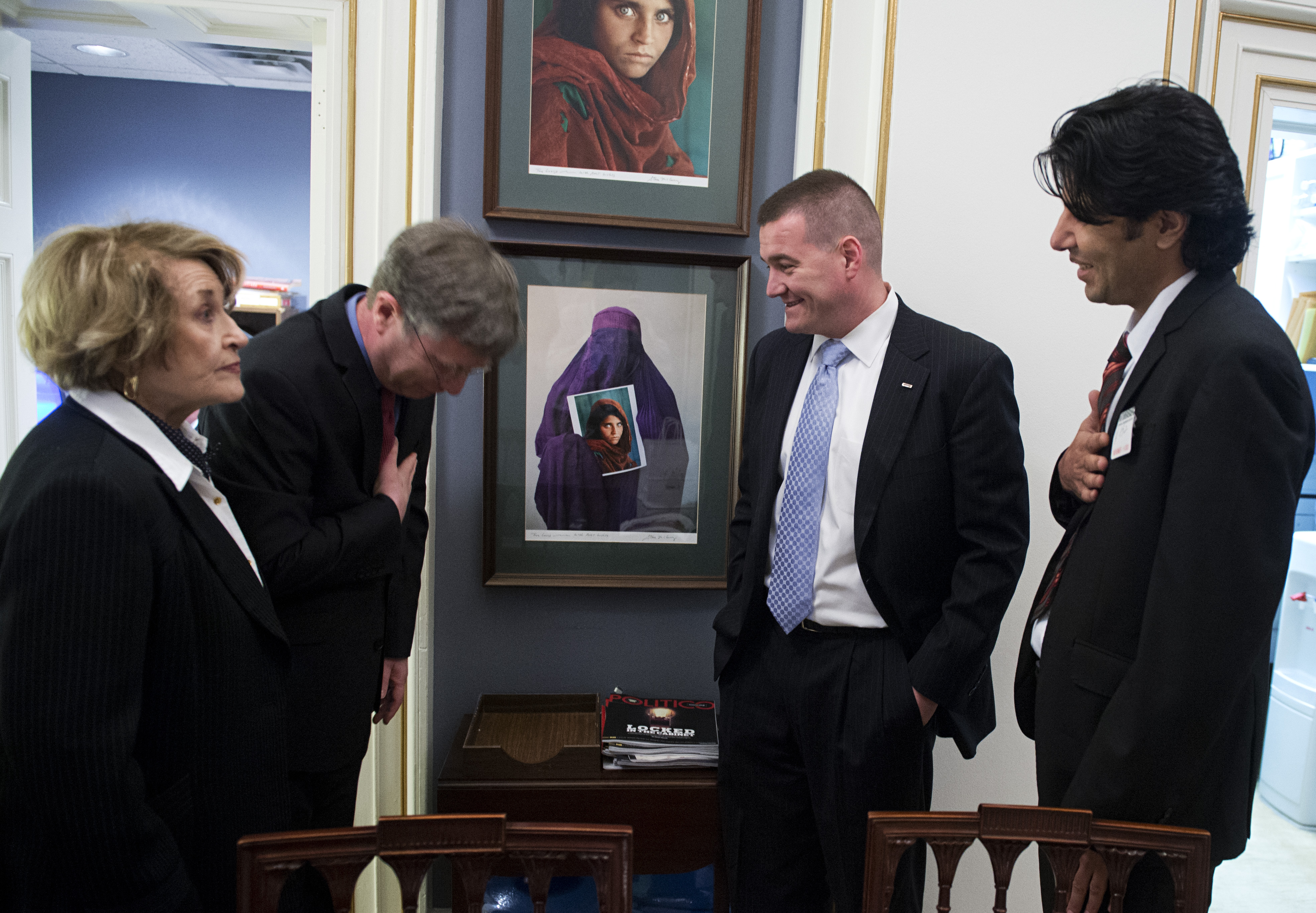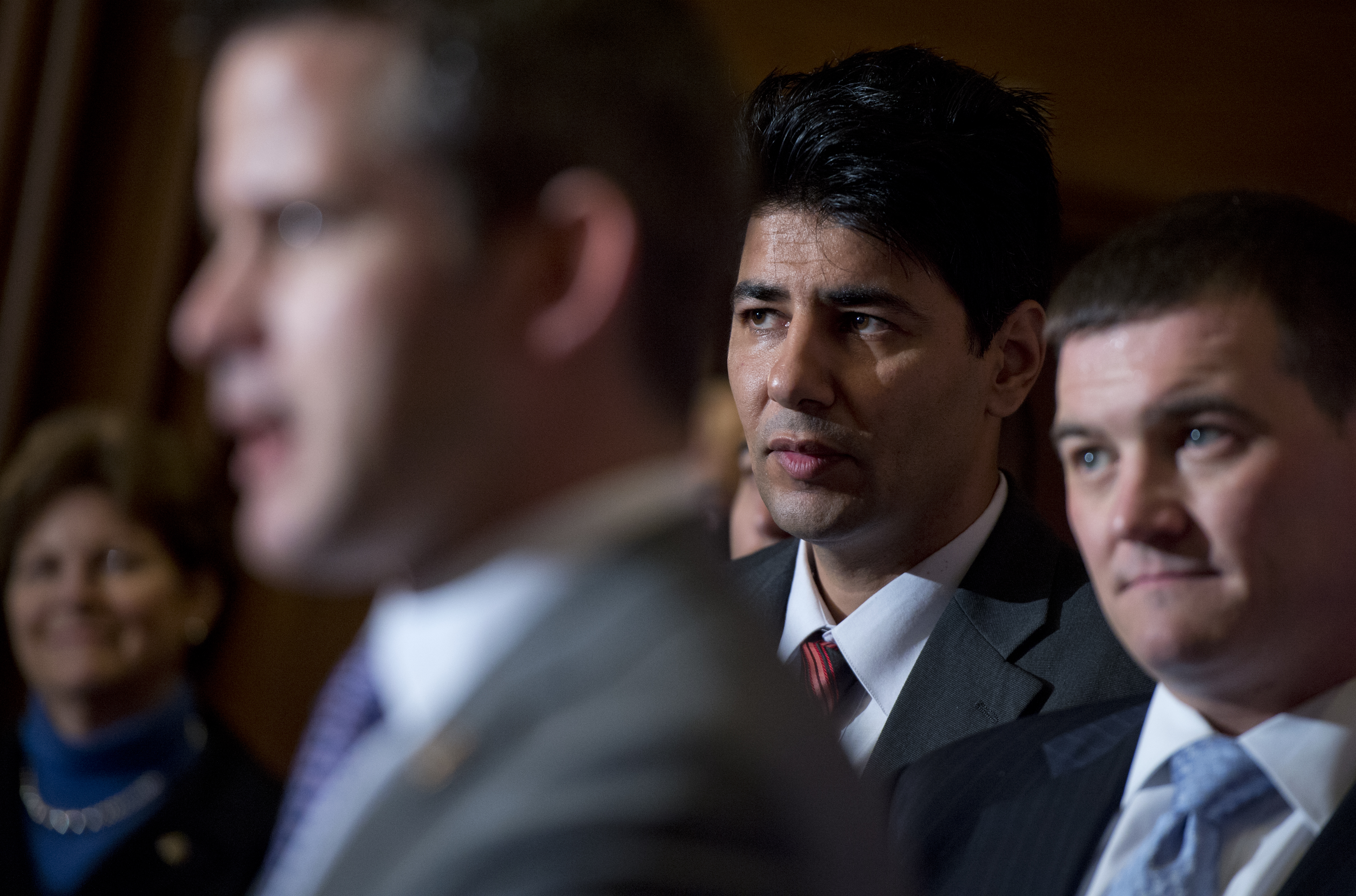An Afghan interpreter who grabbed a rifle to help fight off a Taliban ambush, saving the lives of five American soldiers more than a decade ago, finally became a U.S. citizen on June 29.
In Fairfax, Virginia, alongside 170 socially distanced immigrants awaiting to swear allegiance to the United States, Janis Shinwari and his two children officially became Americans citizens in a ceremony presided over by Ken Cuccinelli, the acting deputy secretary for the Department of Homeland Security.
“During his service, he saved the lives of five American soldiers. That is not something many people can say,” said Cuccinelli.
ICYMI: Yesterday, @HomelandKen joined a naturalization ceremony welcoming 20 #NewUSCitizens at our Washington office. Included were Mr. Janis Shinwari & his wife. Shinwari was a translator alongside our troops in Afghanistan & saved the lives of 5 Americans. Congrats to all! pic.twitter.com/CJgrqIiMBb
— USCIS (@USCIS) June 30, 2020
In 2004, in spite of the risks, Shinwari joined the Americans as an Afghan interpreter after seeing Taliban brutality firsthand. “If the Taliban catch you, they will torture you in front of your kids and families and make a film of you and then send it to other translators as a warning message to stop working with the American forces,” Shinwari told CNN in a 2018 interview.
Yet despite the constant threat, Shinwari continued to serve with distinction.
On April 28, 2008, while on patrol of Waghez in Ghazni Province, Army Captain Matt Zeller and his men were ambushed by Taliban fighters after the convoy got incorrect directions from a local farmer.
One of Zeller’s MRAP vehicles ran over a roadside bomb, stranding the Americans and making them an easy target. Soon, insurgents began firing rocket-propelled grenades and popping off shots from Kalashnikov rifles.
Pinned down in the middle of a field, Zeller recalled to NPR in 2013 that “it was the worst firefight of my life. I ran out of grenades. I was literally counting my bullets, and I remember thinking, we might not make it out of this one alive.”
Originally back at base when the firefight started, Shinwari went alongside a quick reaction force. As an interpreter Shinwari wasn’t supposed to fight, yet he carried an assault rifle anyways.
As Zeller focused on a ridge line, a Taliban fighter rushed up behind him. Shinwari started shooting.
“Somebody yelled, ‘Zeller!’ and I turned and I saw Janis shoot a guy. There was a guy rushing up to attack me and Janis shot him, saving my life,” Zeller told NPR.

The two men had only met days prior, but “since that time, we become even closer than brothers,” Shinwari told CNN.
Zeller promised Shinwari that he would get him to the States, and in 2011 the Afghan applied for the Special Immigrant Visa Program designed to grant asylum for both Iraq and Afghanistan citizens who had worked with the U.S. military.
On the list, Shinwari and his family waited over two years for the visa to come through. As weeks turned into years, at one point Shinwari had to go into hiding.
“I was involved in detaining over 200 Taliban,” Shinwari told NPR. “And in that time, I didn’t cover my face. They all know me by name.”
The program, which authorizes 4,000 visas annually, was and is notoriously slow.
At present there are more than 18,000 former interpreters awaiting visas. According to Fox News, a recent State Department report found that the reason why the process is plagued with such a long wait time is that only one person oversees the entire program.
It took three years to get my visa,” Shinwari told Fox News. “This process is getting, like much longer and most of them, [applicants] they got killed by Taliban waiting for their visa.”
Shinwari and his family reached the U.S. in 2013, and continues to serve the military. He is currently employed at BriarTek, a company that makes rescue beacons for sailors.
He also, alongside Zeller, created a nonprofit organization called No One Left Behind. The foundation, according to its mission statement, is “dedicated to ensuring that America keeps its promise to our interpreters from Iraq and Afghanistan.”
And as he took his oath of allegiance to his new nation last Monday, Shinwari said he felt grateful. “The best part is you’re safe,” he told NPR. “You don’t have to worry, you can sleep well. Once you are here, you’re free.”

